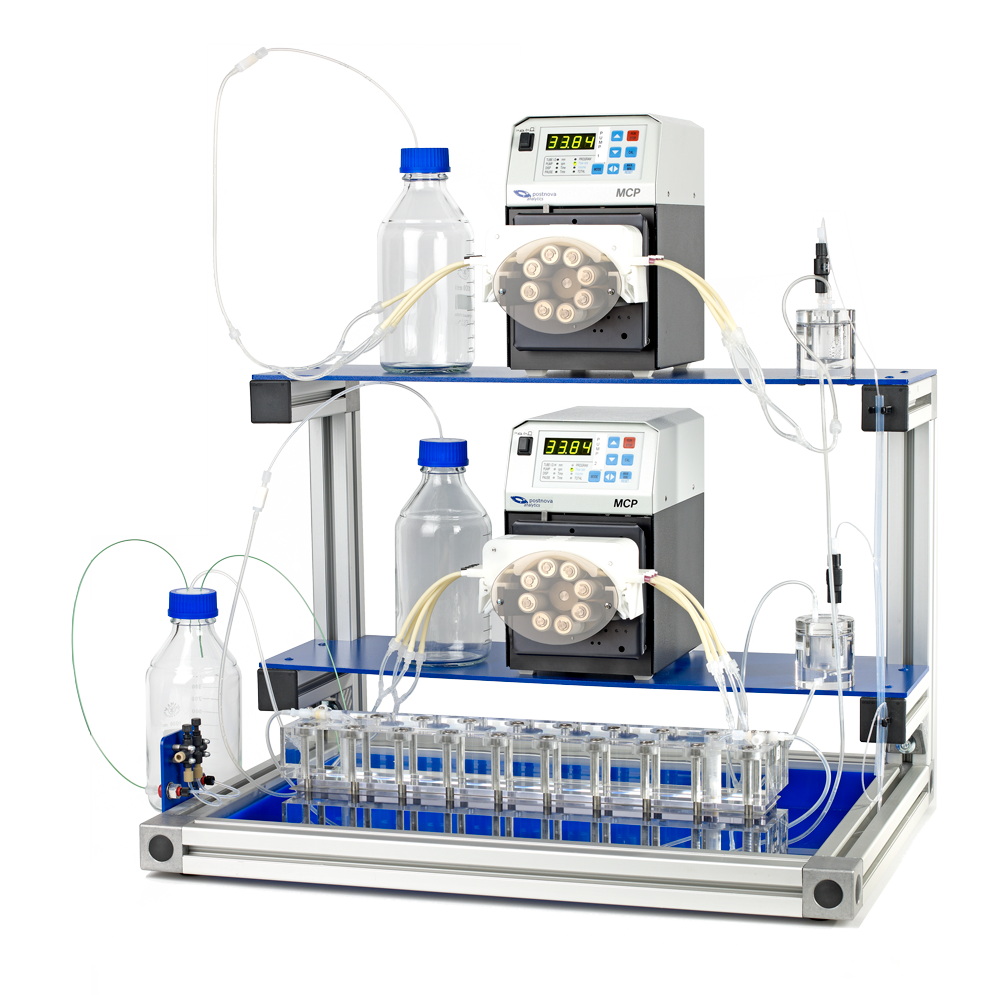Postnova Gravitational SPLITT GF2000 GS system

Preparative particle fractionation
Gravitational SPLITT can be used to separate a diverse range of samples such as environmental (sediments, colloids), pharmaceutical/biotech (cell organelles, bioparticles, starch granules) and other samples as diamond powders, carbon black, silica etc. with a size from 50 um down to about 1 um (for laboratory use only).
SPLITT fractionation utilizes the well-controlled hydrodynamics found in thin cells and the simplicity and flexibility of an externally applied field. The high stability of flow leads to high resolution separations and reproducible results. Since a known field is applied, the separation is predictable and can be fine-tuned for individual samples. The field, typically gravitational in nature, is oriented in a direction perpendicular to the laminar flow of the carrier fluid through the cell. When the field is provided by the Earth‘s gravity, the overall cell design is a simple flow channel, whereas, when a centrifugal field is used, the channel design is more complex (see Centrifugal SPLITT).
Why use Gravitational SPLITT?
- SPLITT enables the user to perform continuous preparative particle separations from mg to g quantities.
- SPLITT is applicable for particles in the range of 1 - 50 um.
- Innovative but simple technique based on hydrodynamic flow effects with no membranes
- involved thus eliminating membrane interactions and adsorption problems.
- Size cut-off for a given application can be selected flexible since it depends only on the inlet
- and outlet flow rates.
- Very fast and gentle particle separation, compatible with a broad range of suspension com-
- position and aqueous solvents.
- Capability for rapid and flexible isolation of narrow size cuts and the high efficiency removal of oversized or undersized particles.
